Muslims around the world observe the practice of eating halal food. In Singapore, you would have come across the term halal many times before; from product labels in supermarkets to our very own NUS canteens that have a halal section for cutlery and plates. But what does the term halal really mean? And how are student experiences in NUS shaped by faith practices such as eating halal food? This week’s blog article is a deep dive into everything halal food on the NUS campus: food options, student perspectives, and insider information!
The halal sign as seen on a supermarket product.
What Is Halal Food?
First, let’s set the stage. Halal, in the context of food, can be understood to be food or drink that is permissible for consumption in the Islamic faith. “The word halal is an Arabic word that means lawful or permissible. For example, halal food includes vegetables & fruits, and for meat, animals that are slaughtered in accordance with Islamic law,” explained Sayyid Harith (Y3, Project and Facilities Management), the current and 60th President of the NUS Muslim Society (NUSMS).
According to Islamic teachings, alcohol, pork, and other swine products are not fit for consumption and consequently fall outside the confines of halal food. This is quite well known amongst Muslims and non-Muslims alike. What a lot of people may not be familiar with, however, is that other meats are also considered impermissible unless the animals have been slaughtered in the Islamic manner.
So, while you may suggest that your Muslim friend eat from the chicken rice stall, they may decline if the stall is not halal-certified and hence there is no guarantee that the chicken has been slaughtered as per Islamic guidelines.
In Singapore, Muslims have access to a wide variety of halal-certified and Muslim-owned eatery options ranging from fine dining restaurants to hawker stalls. While halal-certified means that they have obtained a halal certification from MUIS, the Islamic Religious Council of Singapore, Muslim-owned restaurants also prepare halal food, but are not certified. Most Muslims in Singapore (including me) are happy to eat at Muslim-owned establishments while some prefer to exercise more caution.
The Western stall at The Deck is an example of a Muslim-owned establishment. They are very popular and run out of food easily so be quick to secure your spot in the lunch queue early!
Muslims Of NUS
Here at NUS, we host a significant Muslim population. Some reside on campus while others commute daily. Some are undergraduates while others are postgraduate students. Some are lecturers, professors, and fellows. Many are local students while some are exchange and international students. It really is a vibrant Muslim community consisting of people from all walks of life.
The Muslim community in NUS is diverse (Picture taken at an event held by the NUS Muslim Society).
The University Food Culture
A lot of students, even the daily commuters, spend a good chunk of their time in school during the weekday. Their time on campus is split between attending lessons, getting a few hours of work in, catching up with friends, participating in events, and engaging in a range of co-curricular activities (CCAs). Naturally, food comes to play an important role in the story – whether it is grabbing a quick snack in between back-to-back lectures or getting supper together with friends after classes. Ask any NUS student, and they will tell you how food is a big part of the NUS student experience and culture.
Muslim students are, of course, no different. Some of my fondest memories in university are of chatting away with my friends at Al-Amaan for hours about everything under the sun. At this point, the uncle there recognises me and will ask, “Yellam okay, ma?” which in Tamil means “Is everything [the food] alright?”.
Halal Options On NUS Campus
As of now, all canteens in NUS (with the exception of The Terrace located in COM 3) cater to the needs of the Muslim community with various halal and Muslim-owned stalls. Here is a list of the different halal options available on campus compiled by the NUS Muslim Society. These stalls often serve their food on green trays or use green plates and cutlery to demarcate halal food.
Halal stalls often make use of green cutlery and/or trays (ft. my yum plate of nasi padang).
As a full-time international student in NUS, I personally find the halal options on campus to be easily accessible. Most of my classes are split between the Faculty of Science (FoS) and the Faculty of Arts & Social Sciences (FASS), both of which have canteens nearby (Frontier, The Deck, and Techno Edge) that are popular among Muslim students and staff for the number of halal options they offer. The choices include Western, Nasi Padang and Chef’s Wok – to name a few of the stalls that I regularly patronise.
Halal Food @ Prince George’s Park Residences
However, as a resident of Prince George’s Park Residences (PGPR), accessing halal food has proved to be a little trickier. During my two years of stay in PGPR, it has only had one halal Muslim-owned stall available in the canteen. During the COVID period, while lectures and tutorials were mostly online, I had enough and more time at hand to cook in my floor’s kitchen. The one halal stall sufficed. But since life returned to normalcy, I find myself spending a lot of time on campus, returning to my room only in the evening. Without being able to cook as much, I definitely feel the growing need for the PGPR canteen to open more halal stalls. As I write this, the only halal stall we have is closed due to, from what I understand, a lack of manpower.
I try to cook as much as possible to keep expenses low and eat healthier.
But life goes on. Since PGPR is located near to the Kent Ridge MRT station, a quick stop there before heading to class in the morning or returning to my room in the evening does the job. The Kent Ridge MRT station is a halal food galore. RedSpot if you want to eat at an all-halal traditional canteen, Stuff’d or Ordinary Burgers for wraps and burgers, Subway for healthier options, Burger King for fast food, and many more. While prices are not subsidised (unlike NUS canteens which sell at lower prices), the portions are filling and the diversity of the food portfolio caters to everyone.
A new Indian Muslim stall is opening soon adjacent to Fairprice inside the Kent Ridge MRT station.
Friends Syed Awais (Y1, PhD in Biological Sciences) and Nasir Ahmed (Y2, PhD in Mechanical Engineering) prefer cooking in their PGPR kitchens to eating out in NUS canteens. For these two international students from Pakistan and Nepal, cooking has become a hobby. “We feel like something is missing if we don’t cook often,” chuckled Syed. They cook everything from instant noodles to elaborate chicken kormas. I’ve had a chance to taste their cooking, and I am sold!
Halal Food @ Residential Colleges & Halls
I also wanted to hear from students who stay in Halls and Residential Colleges (RCs). These two types of hostel accommodation in NUS come with a compulsory meal plan which includes breakfast and dinner.
For Muhammad Hazmi (Y2, Nursing), a resident at Tembusu College, food in RC is just right. The dining hall features a Malay and Indian stall, both of which are halal. On days when he is running late for class, Hazmi likes to dabao food from the dining hall to eat later, a smart way to save money since the meal plan is compulsory.
Some of Hazmi’s meals
When Maryam Binte Aziz (Y2, Economics) was looking into residential options in NUS, she emailed the management office at Ridge View Residential College (RVRC) to ensure that halal food was available in the dining hall. Just like Tembusu, RVRC too has Malay and Indian food stalls which serve halal food. For her, the food can sometimes get a little repetitive and she hopes for more halal picks. Ayesha Chua (Y2, Psychology), another RVRC resident, shares Maryam’s sentiments. She also mentioned that the halal menu could be more diverse, particularly considering the cost of the meal plan which is the same regardless of the more limited options for Muslim students.
Ayesha (very kindly) invited me down for a meal at the RVRC dining hall and here’s what I had from the Indian stall!
Hall meals differ slightly in that there are no stalls but instead, one halal course is offered for each meal (breakfast and lunch). “The halal food is quite good,” remarked Harith Raiyan (Y1, Mechanical Engineering), a resident of Temasek Hall. Harith, too, had enquired with seniors regarding food options before coming to Hall and came to the conclusion that Temasek Hall had the best halal food (his words, don’t come for us 😉). The variety is better than what he was expecting and he finds the meal plan to be reasonably priced.
Halal Food @ UTown
UTown, a student residence different from Halls and RCs, offers no meal plan. UTown is renowned amongst NUS students as a vibrant centre for student life. This is also why Tasneem Godhrawala (Y3, Psychology), a fellow international student, opted to reside in UTown. She surfed the internet, read blogs, and watched videos to find out more about halal food on campus and in Singapore and was relieved to find that locating halal food would not be a struggle.
During our conversation, however, she brought up one concern regarding halal food on campus. “If you want to eat healthy, it is hard to find a halal place that is affordable and easily accessible,” Tasneem shared. Subway in UTown, for example, although halal-certified and healthy, is a pricier option and cannot be eaten daily. Salad outlets near campus, too, typically lack a halal-certificate and this poses a challenge for Tasneem who actively partakes in sports and likes to stay fit.
When eating at the Subway in Kent Ridge MRT or UTown, don’t forget to ask for the 5% student discount!
UTown halal stalls and restaurants, broadly speaking, tend to be on the higher end of pricing. However, Muslim UTowners can look forward to some promising news! The western and pasta stalls in FineFoods are currently in the process of obtaining their halal certificates. In the meantime, Muslim students and staff can dine there, as they’ve already begun using the cutlery and plates designated for halal cuisine.
(Psst… here’s a tip for all you biryani lovers out there. Bismillah Biryani in UTown offers a student deal where you can get a biryani plus a drink for S$6.5. Do check it out!)
The Western Cuisine and PastaGo stalls in UTown FineFoods are slated to become halal-certified soon.
Some Halal Food Concerns
What are some of the challenges when it comes to halal food on the NUS campus? Numerous students I spoke to highlighted the necessity for greater diversity in the food selections available to Muslims. “I sometimes grow tired of the [halal] options,” expressed Nur Diana (Y4, Political Science). She also pointed out that while Muslims are confined to eating from halal stalls, non-Muslims can opt to eat from halal stalls, making a convincing case for introducing more halal alternatives.
Another Muslim student, Nur Nadiah (Y4, Psychology) observed that food is differently priced across the canteens. For instance, Frontier located in FoS has more affordable halal options than The Deck located in FASS. The distance can be an added obstacle for students wishing to save money. Sayyid, the President of NUSMS, also recognised the importance of offering halal choices that are more budget-friendly, noting that the typical student budget is often S$5 or less per meal.
Ramadan on Campus
While food is important in our day-to-day lives, for Muslims, food plays an even more important role during the Islamic month of Ramadan. During this holy period, Muslims across the world abstain from drinking and eating from sunrise to sunset. It’s a month that is spent in worship during the day and at night. It is also a time that brings together the Muslim community. The evening iftar, which marks the breaking of the fast at sunset, is often a communal meal, becoming a means for strengthening community ties.
The past two Ramadans fell during the NUS semester. So of course, I had to ask resident NUS Muslims what their experiences were.
Hazmi, Ayesha and Maryam, residents of RCs, shared that their dining halls would start operation early to provide them with suhoor, the pre-dawn meal consumed by Muslims before beginning their fast. Additionally, in Tembusu, residents were provided with frozen ready-to-eat meals that they could take away the night before and just heat up in their floor’s pantry in the morning. Since iftar time coincided with dinner time, residents would eat from the dining hall as per usual to break their fasts.
Meanwhile, over at PGPR, Ramadan was welcomed excitedly. A group of Muslim students, hailing from various countries, came together and broke their fast together on many days. “It felt like family, you know. I felt super blessed to be able to host people and introduce different cultural foods to others,” said Aisha Noreen (Y1, PhD in Medicine), an international student from Pakistan. She added, “I never imagined meeting such a warm Muslim community in PGPR. Most of us didn’t know each other before Ramadan.”
A delicious serving of Bangladeshi food from an iftar hosted by my friends Maliha and Saadman in PGPR.
As a resident of PGPR, I was there too. Whether sitting on the floor (because there were too many of us to fit on the table) or in the lounges of PGPR while breaking our fast, conversations flew around. Some warm and friendly, and some heated and passionate. Definitely a Ramadan to remember.
Here’s me helping out Aisha as she prepares to host some guests for iftar.
Syed and Nasir, international PhD students, would also drop by mosques nearby like Tentera Diraja, Hussain Sulaiman, and Darussalam to break their fasts as mosques in Singapore offer iftar meals to everyone. Breaking their fast at mosques and then joining congregational prayers at the mosque itself is convenient for most Muslim students, after a long day of classes and fasting.
An iftar meal at the Hussain Sulaiman Mosque near NUS Business School.
A great initiative taken during Ramadan to accommodate for Muslims students’ needs is the pre-ordering of food available at Chef’s Wok in the Frontier canteen. While the stall usually closes by the time of iftar, students are able to pre-order food for iftar and self-collect it from the stall by 6:30 pm. Do keep an eye out for this when the next Ramadan comes around and you need a quick, filling, not-too-heavy-on-the-wallet fix for iftar!
A Mini Halal Food Guide
I have covered much ground on halal food and related experiences in this article. I hope I haven’t lost you. Almost there, I promise.
While interviewing the many Muslims who were featured in this article, I asked them to recommend one dish from the eateries on campus. Here’s a mini halal food guide for you and your friends to work through over the semester:
- Mala Beef Fried Rice (Hong Kong Cafe – Techno Edge)
- Spring Rolls (Pham Quyen Vietnamese Cuisine – Clementi Supper Stretch)
- Nasi Goreng Kampong (Al-Amaan – Clementi Supper Stretch)
- Prawn Hokkien Mee (Chef’s Wok – Frontier)
- Black Pepper Chicken Hor Fun (Chef’s Wok – Frontier)
- Fish n Chips (Western – The Deck)
- Nasi Padang (Muslim – Techno Edge)
- Biryani (Bismillah Biryani – UTown)
- Ayam Penyet (Uncle Penyet – Frontier Aircon)
- Fried Chicken Garlic Rice with Mentaiko Sauce (Western Cuisine – FineFoods)
Known colloquially amongst NUS students as “supper stretch”, this row of restaurants along Clementi Road is a popular supper spot that is open well past midnight and has multiple halal options to choose from.
Closing Thoughts…
As evident across this article, the Muslim experience is heterogenous owing to the diversity within the community itself. The case of halal food is no different. If you are reading this, I hope this article has given you a broader perspective on the halal food scene in NUS, and through that, offered a glimpse into the everyday experiences of Muslims around you on campus. As a leading university in the world and Asia, I anticipate a future for NUS that is both inclusive and understanding. And I hope you will join along!
(Psst… while you are here, here’s a reminder to order food through the NUSmart Dining App. Canteen queues can be ginormous during peak hours and ordering through the app is a smart way to skip the queues.)
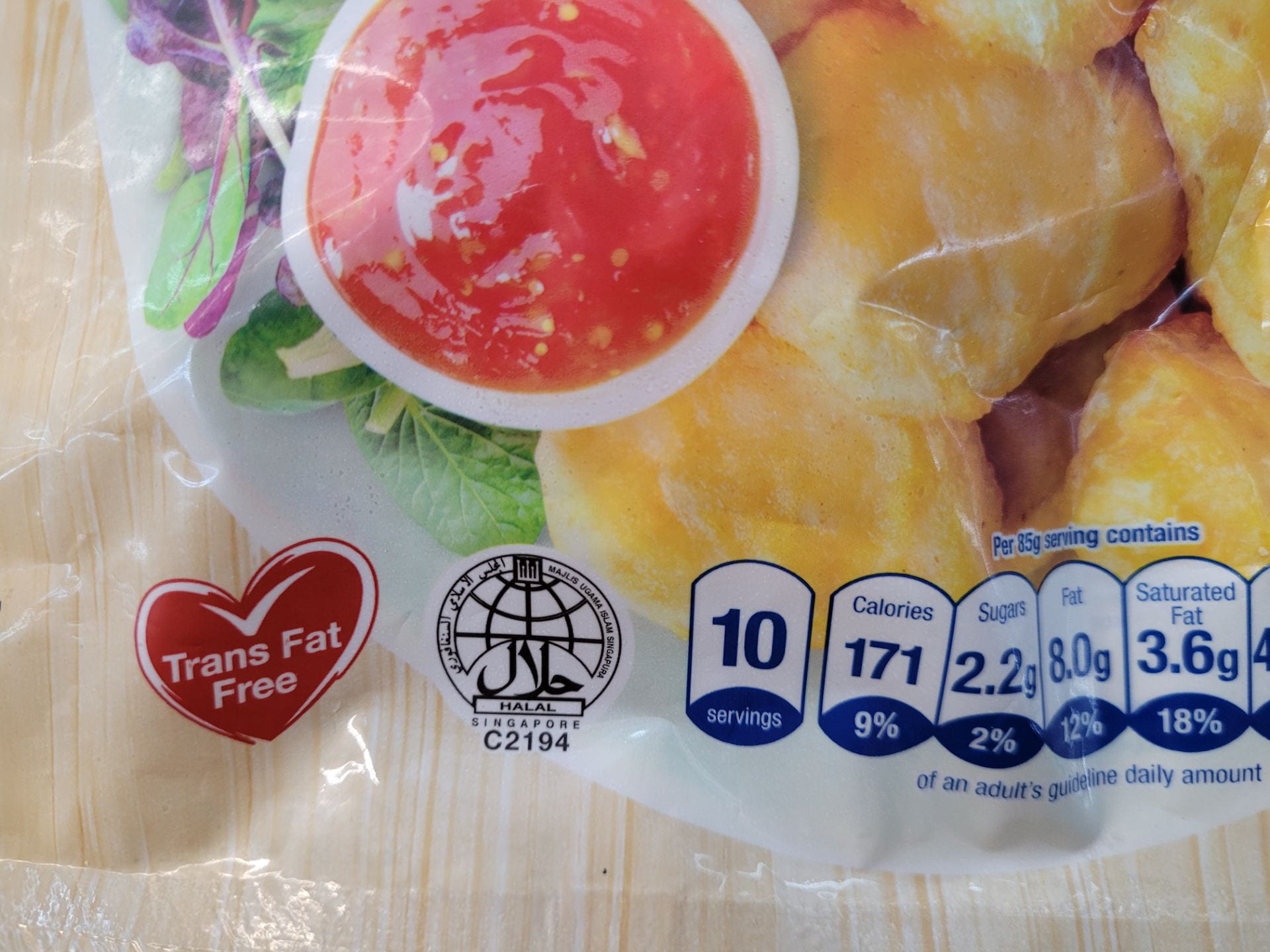

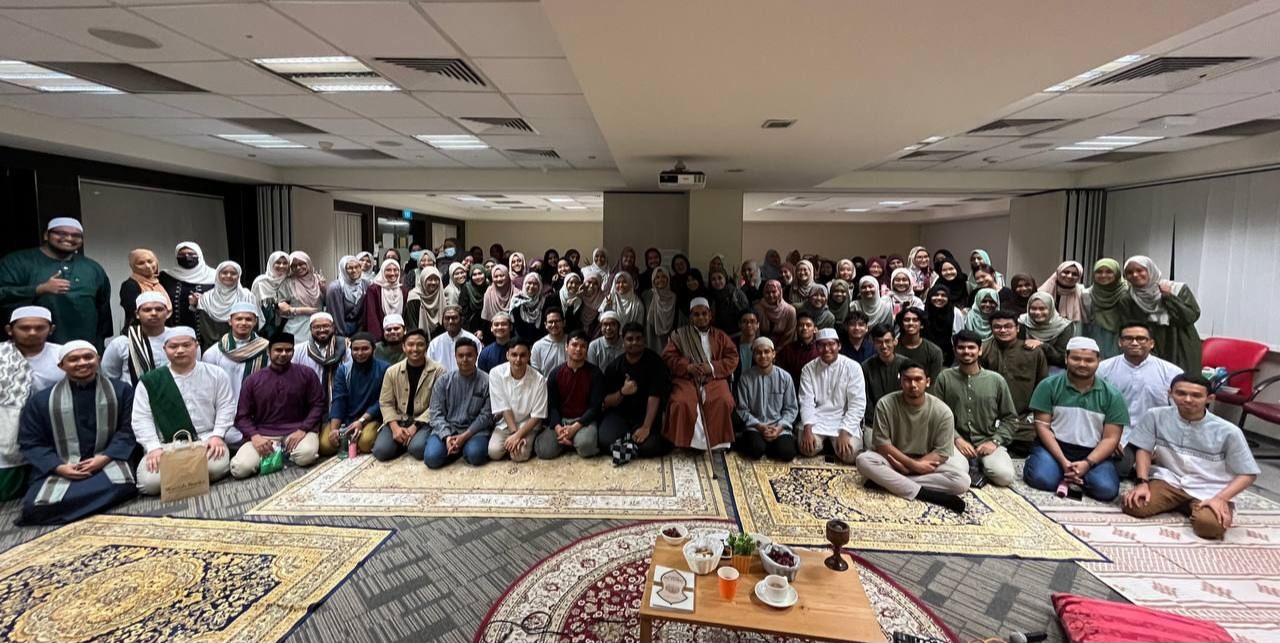
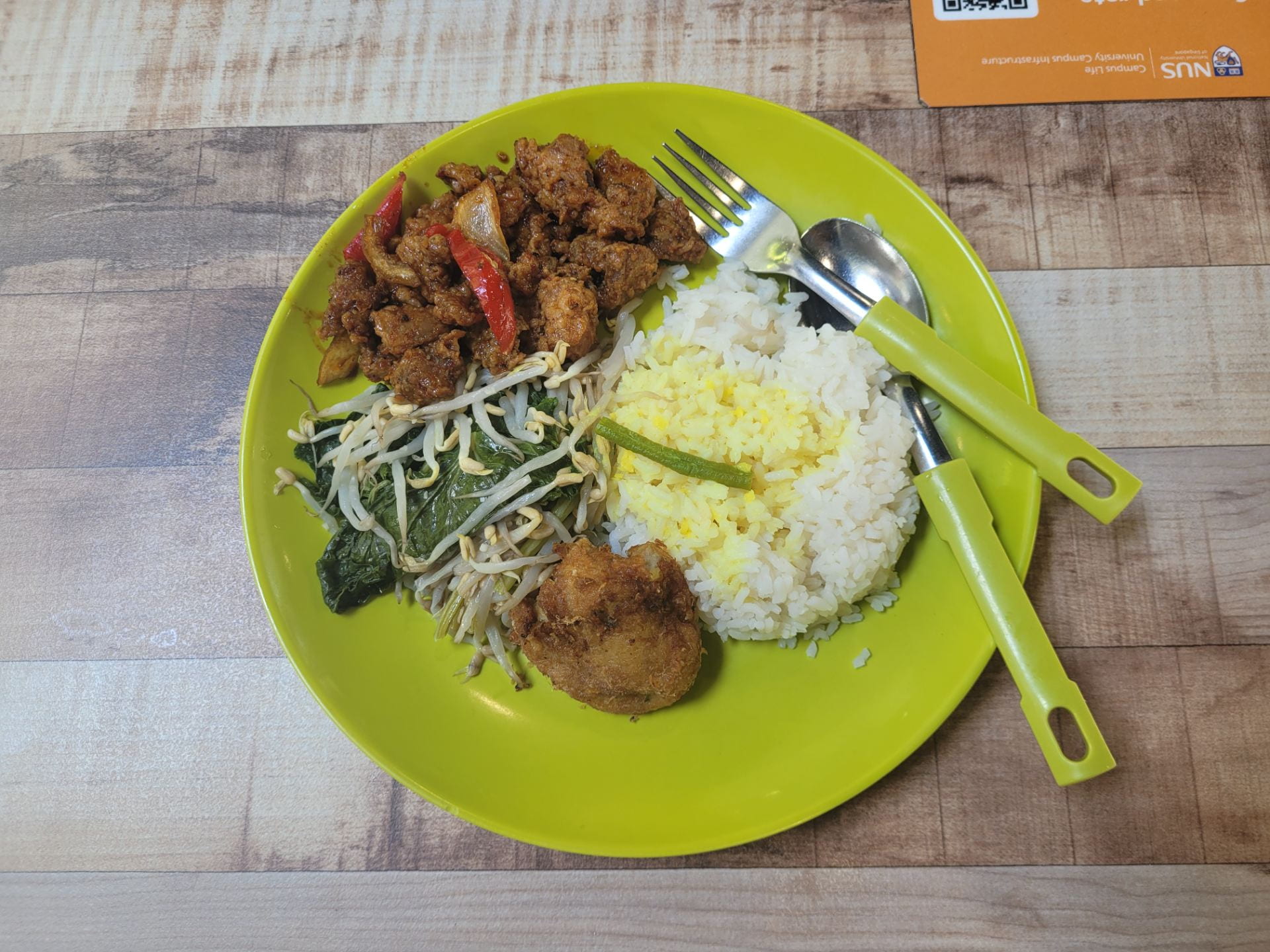
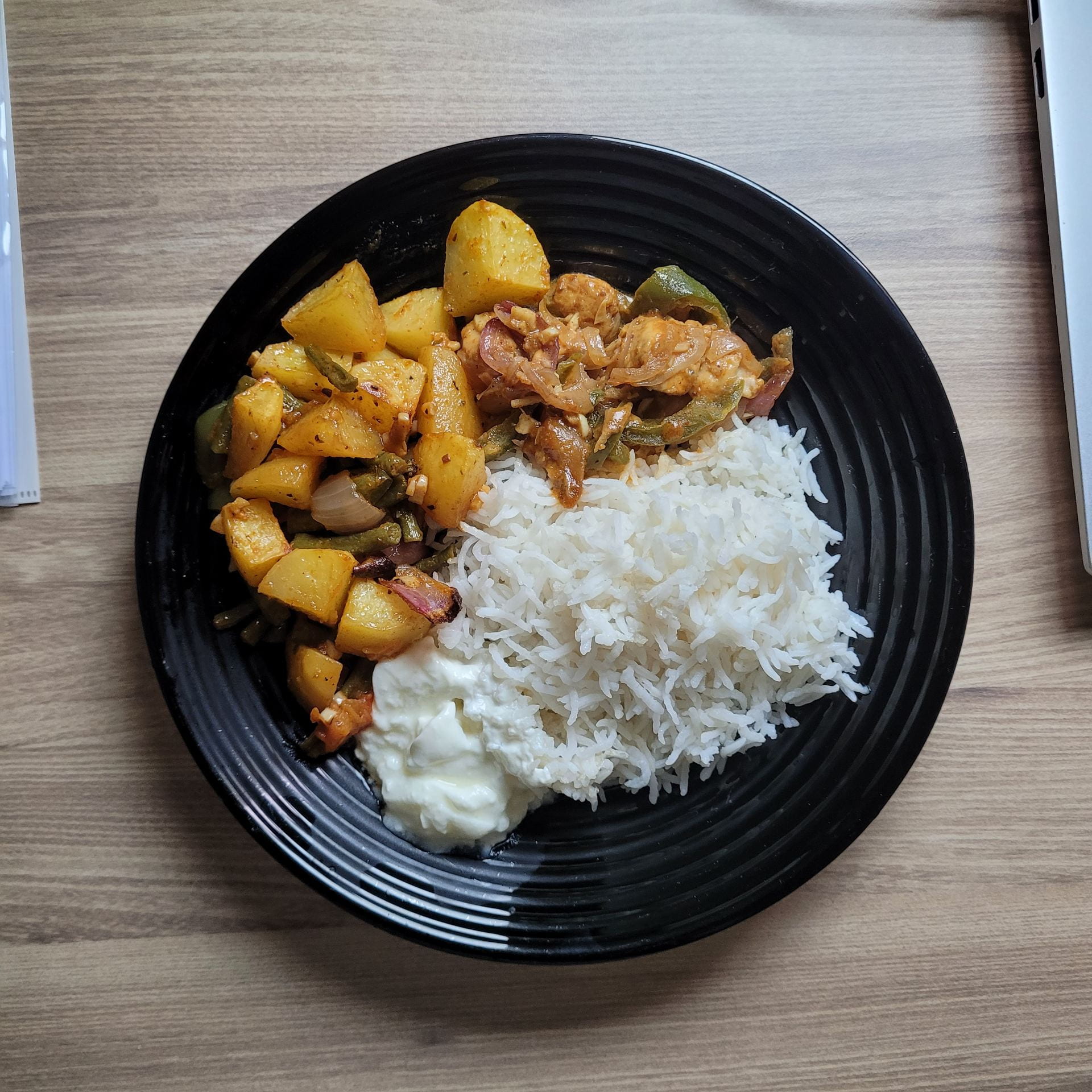

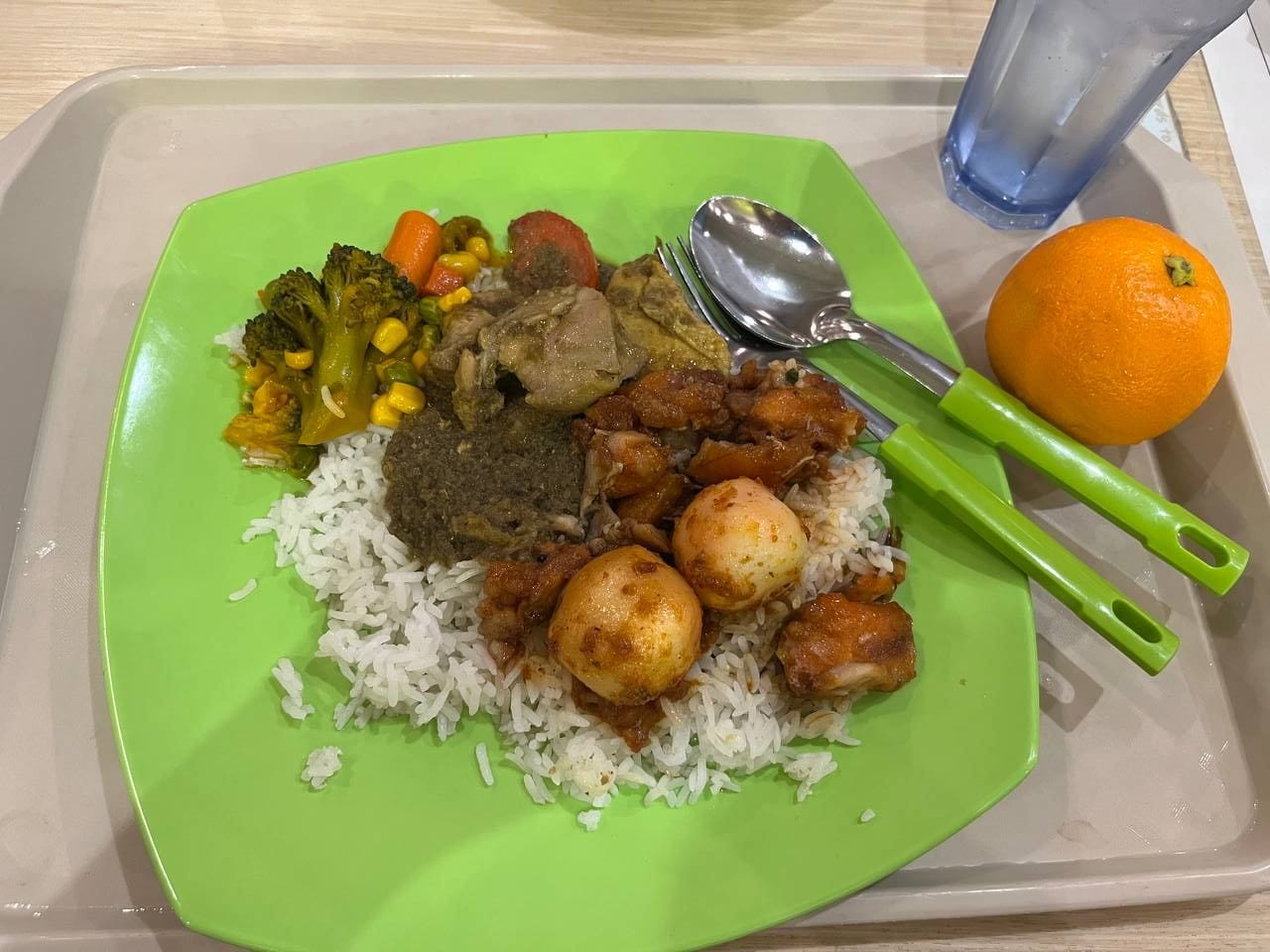
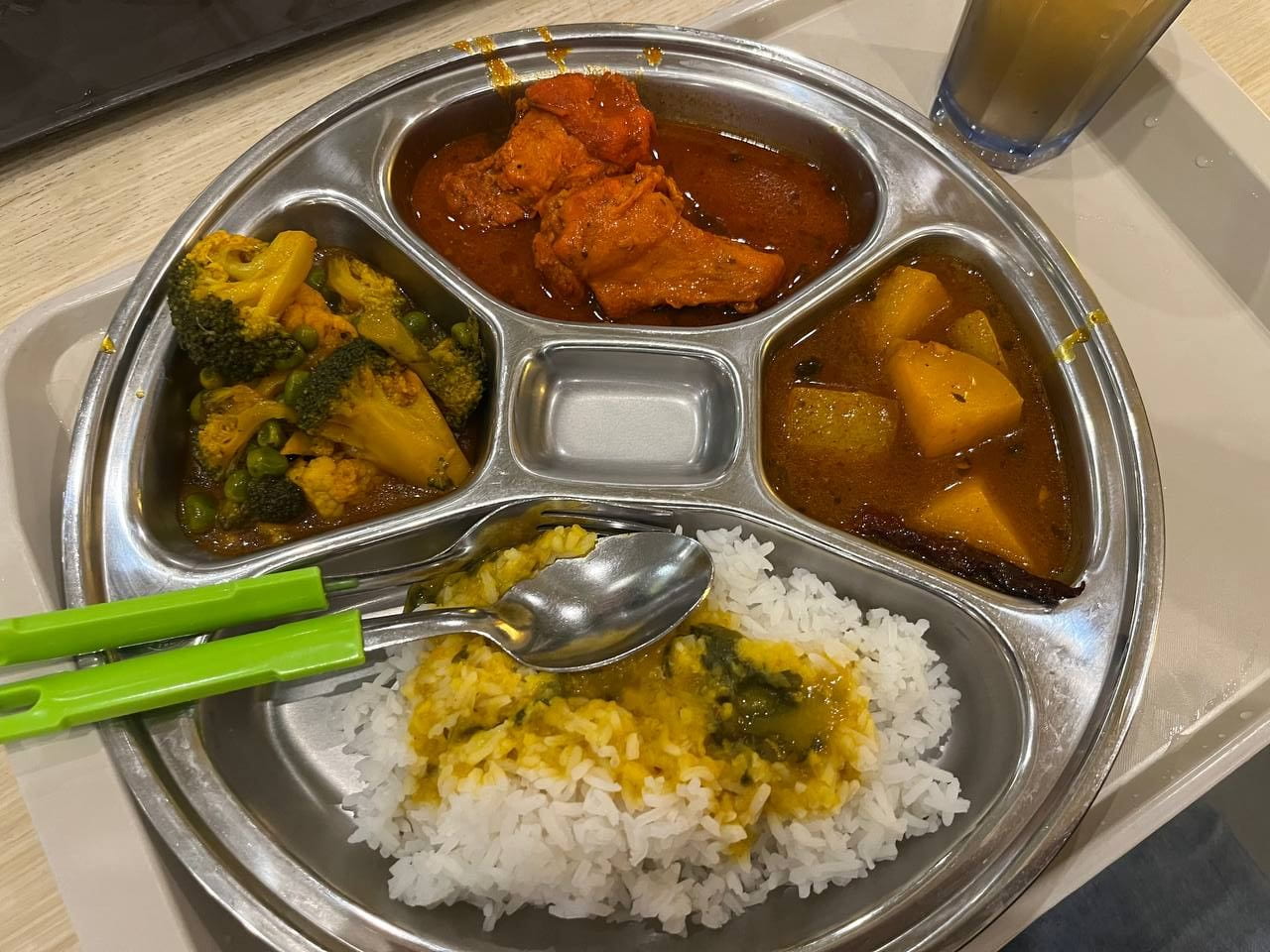
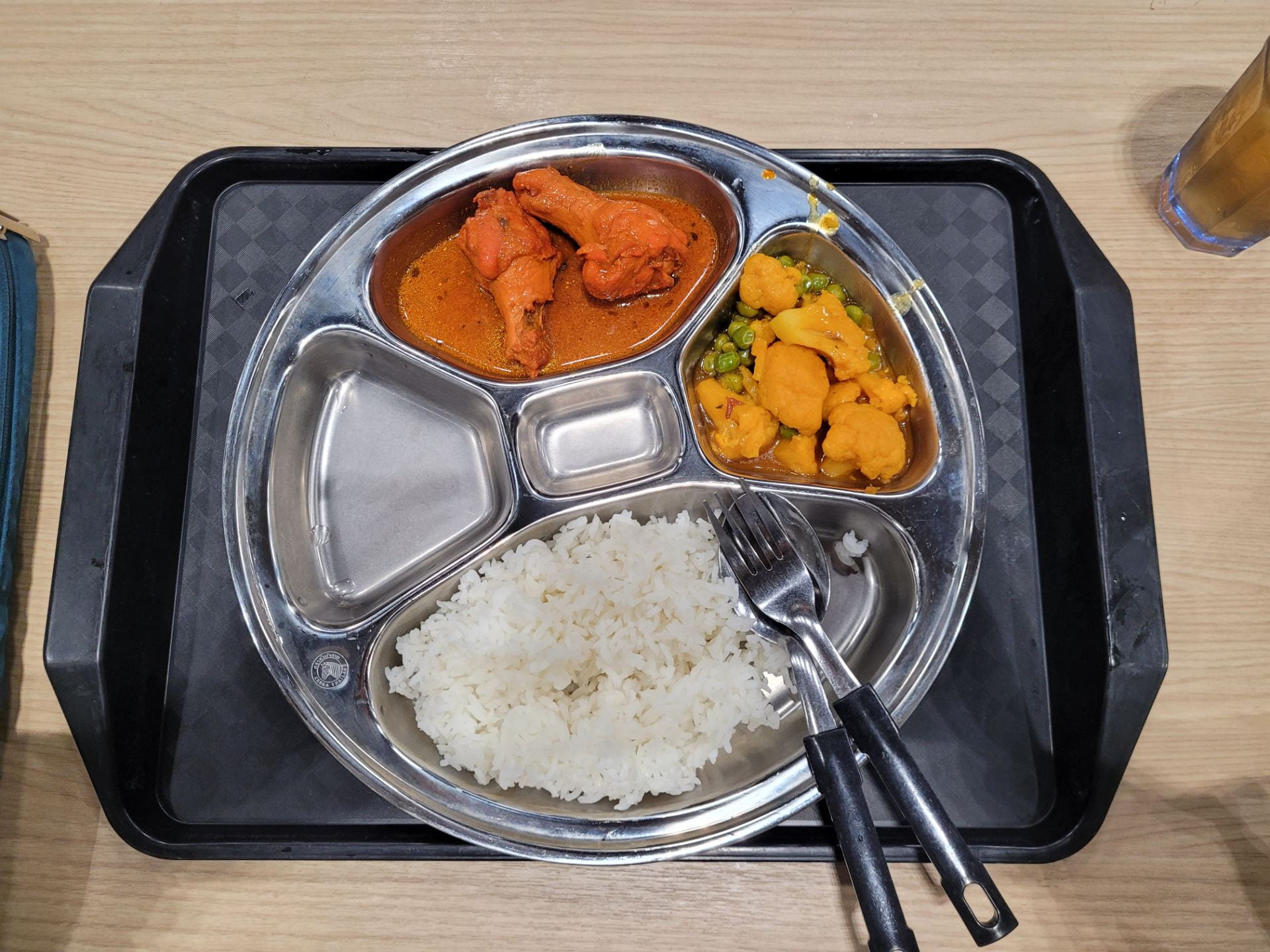

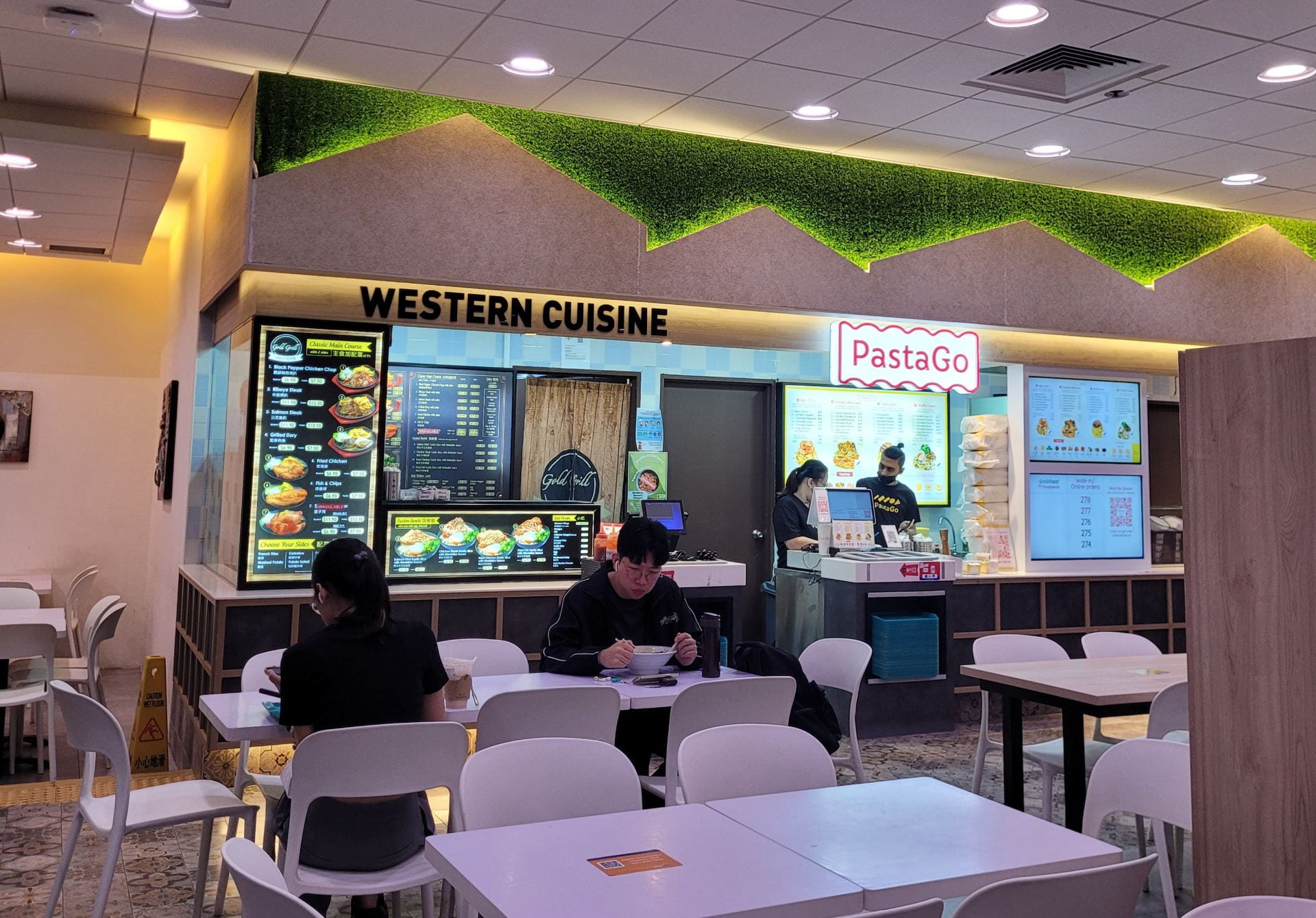
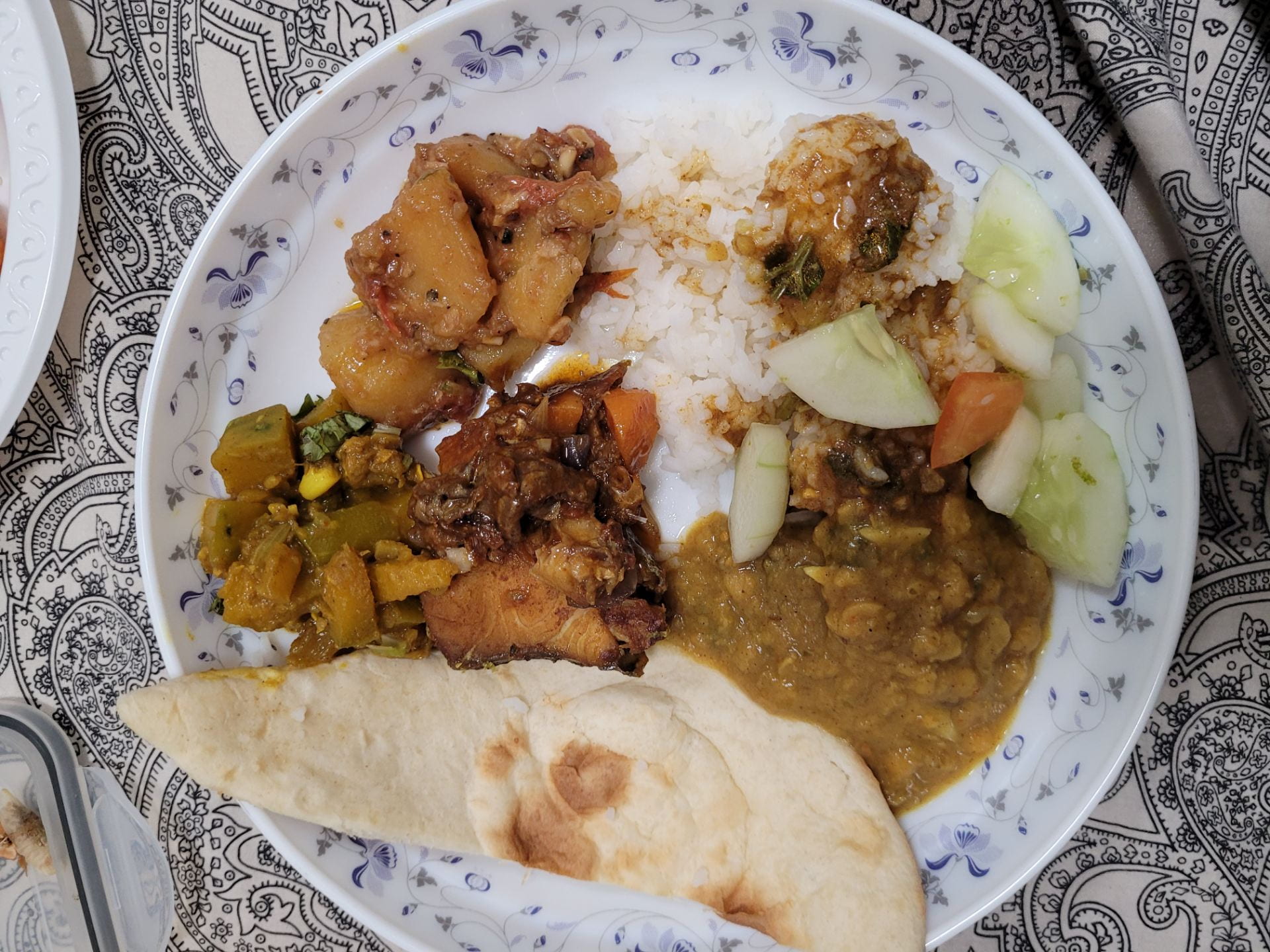
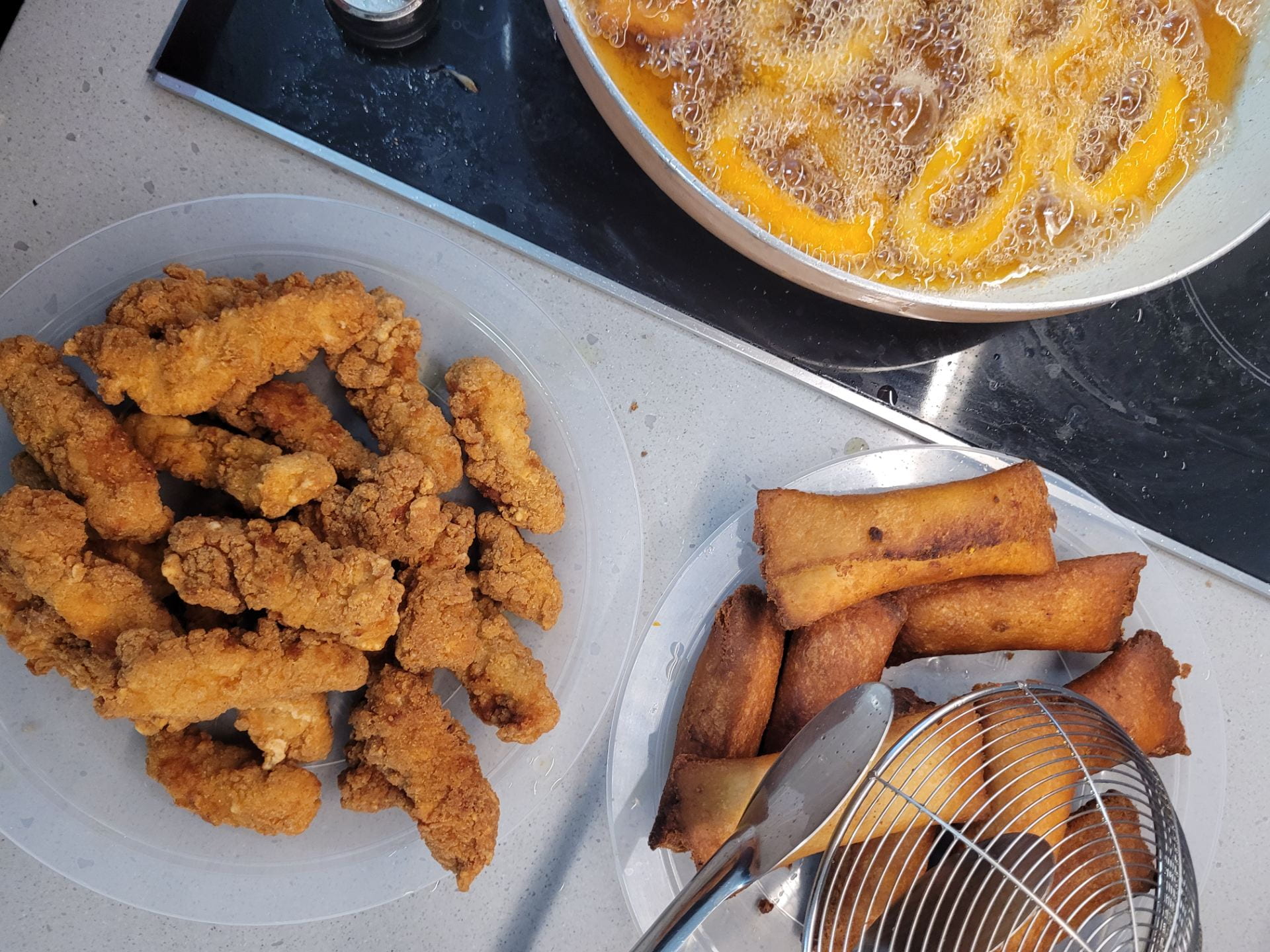

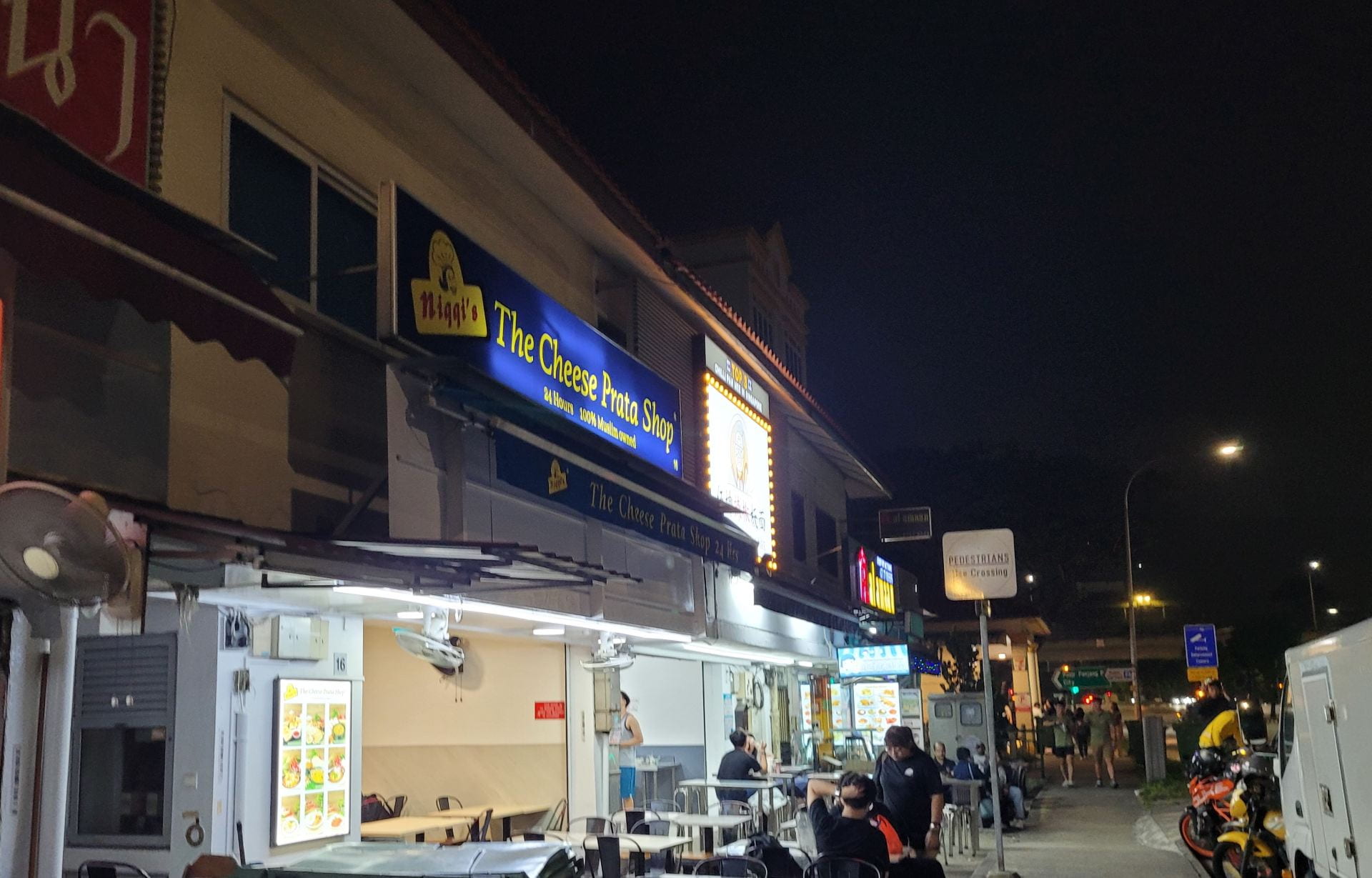
That’s blessing to know about a lot halal options here and this blog is so awesome for not only Halal food lovers as well for all to know about options for good and healthy food as well as for new comers to know about here life is easy going in NUS hostel life …
Thank you! We’re happy to hear that it was helpful 🙂